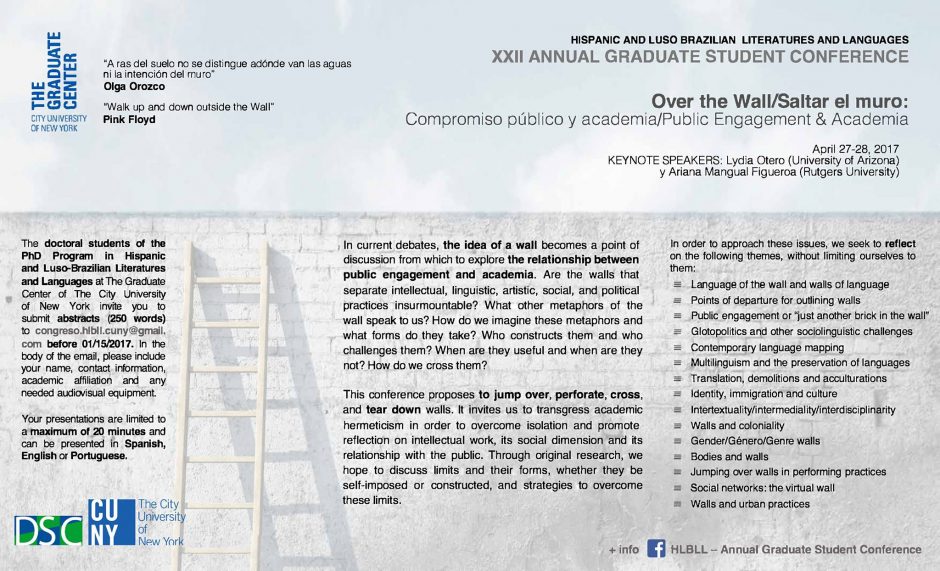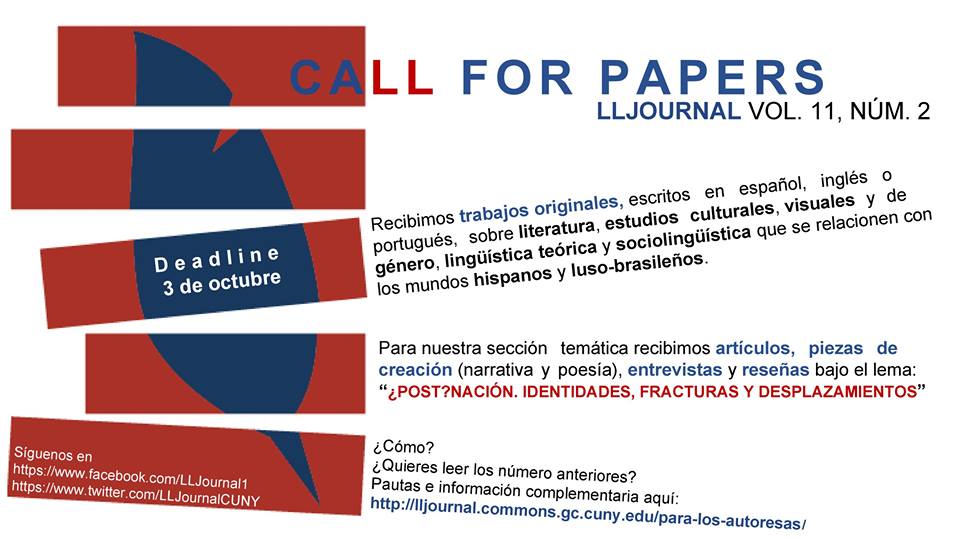I <3 Pop
An interdisciplinary conference of the PhD Program in Comparative Literature at the Graduate Center, CUNY
Call for Papers
Dates: November 10-11, 2016
Location: The Graduate Center, CUNY
Deadline for submissions: September 1, 2016
Keynote Speaker: TBD
“If I had to choose between the Doors and Dostoyevsky, then—of course—I’d choose Dostoyevsky. But do I have to choose?” –Susan Sontag
The information about the conference below has been provided by the “I <3 Pop” organizers:
There seems to be no end to the anxieties, fantasies, pleasures, and possibilities of pop culture—how we consume it, avoid it, appreciate it, and allow it to inform our identities.
Yet, can we theorize pop today? And if so, to what extent are we obligated to do so?
Conceptions of pop culture are marked by continuous change, constant revision, and ongoing re-appropriation. Pop can be a stabilizer of the canon, with its distinction of high and low, while also a way to subvert the canon’s very foundations through a critique of elitism. If, as Adorno argued, mass culture is a deception, an industry that reproduces passivity and perpetuates the reification of social life, is there a way to escape this repetition? Or can we conceive of pop culture as a potential space of resistance, following the work of Stuart Hall and other British Cultural studies? Furthermore, are mass culture and pop culture coterminous?
Pop culture and literary studies have maintained a sometimes-uneasy yet necessary kinship. Thus, Elizabethan popular culture becomes the foundation of the English literary canon, while ephemeral magazine columns and stories become permanent fixtures in the literary landscape. The height of modernism makes reference to “The Wasteland” of mass culture and everyday life, at the same time as it elevates the everyman to Ulysses. The pattern continues today in media forms such as TV, which now displays narrative and artistic complexity rivaling art film of international acclaim.
Twenty-first century pop culture presents new questions for consideration: who are we when we absorb or participate in pop culture? The interactive nature of our contemporary forms of pop culture promotes and engages a rhetoric of listening that may in fact imply a dialectical agency for the receiver, rather than blind consumption. However, the politics of this engagement are troubled by various global contexts of reception. Does a study of pop involve universalization and standardization that could pander to dangerous types of political populism or does it engage various registers that foster a productive sense of difference?
We invite papers and presentations from all disciplines focusing on works from any historical period and geographical region, including literature, theory, philosophy, visual arts, film, television, social sciences, technology, and alternative media. Traditional papers are welcome, as well as multi-modal presentations and performances.
Possible topics include but are not limited to:
- Art, advertising, brands, products, food, consumption and the consumer
- Identity within pop culture, including race and gender
- Music
- Technology
- Comic books, Anime, and narrative forms across media
- Television
- Film, including Hollywood, Bollywood, Nollywood, YouTube
- Popular magazines, journals, sports, and news media
- Video games and gaming culture
- Image, the body, and pornography in various media forms
- Myth and mythology
- Camp and kitsch
- The internet and social media
- Questions of discourse and intellectual property
- Science fiction, fantasy, horror
- The taboo, banned media, subcultures, and cult classics
- Popular language, hybrid language, idioms, text language, and slang
- Fashion, style, and lifestyle
- Imitation, appropriation, adaptation
- Questions of social class and social capital
- Self-referentiality, pop culture icons and iconography
- Relations between pop culture and political populism
- Popular psychology
- Popular science
Please submit a 300-word abstract to [email protected] for a 15-20 minute paper, performance, or presentation by September 1st. Proposals should include the title of the paper, the presenter’s name, a 50-word bio including institutional and department affiliation, the form that your presentation will take (if it is not a traditional paper), and any technology requests.






